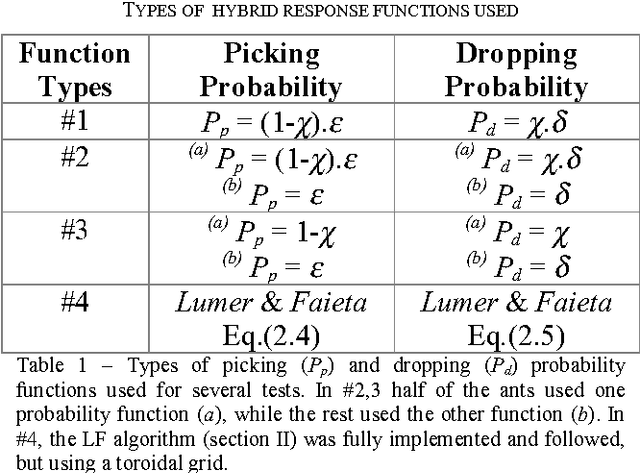Self-Organized Stigmergic Document Maps: Environment as a Mechanism for Context Learning
Paper and Code
Dec 17, 2004



Social insect societies and more specifically ant colonies, are distributed systems that, in spite of the simplicity of their individuals, present a highly structured social organization. As a result of this organization, ant colonies can accomplish complex tasks that in some cases exceed the individual capabilities of a single ant. The study of ant colonies behavior and of their self-organizing capabilities is of interest to knowledge retrieval/management and decision support systems sciences, because it provides models of distributed adaptive organization which are useful to solve difficult optimization, classification, and distributed control problems, among others. In the present work we overview some models derived from the observation of real ants, emphasizing the role played by stigmergy as distributed communication paradigm, and we present a novel strategy to tackle unsupervised clustering as well as data retrieval problems. The present ant clustering system (ACLUSTER) avoids not only short-term memory based strategies, as well as the use of several artificial ant types (using different speeds), present in some recent approaches. Moreover and according to our knowledge, this is also the first application of ant systems into textual document clustering. KEYWORDS: Swarm Intelligence, Ant Systems, Unsupervised Clustering, Data Retrieval, Data Mining, Distributed Computing, Document Maps, Textual Document Clustering.
 Add to Chrome
Add to Chrome Add to Firefox
Add to Firefox Add to Edge
Add to Edge